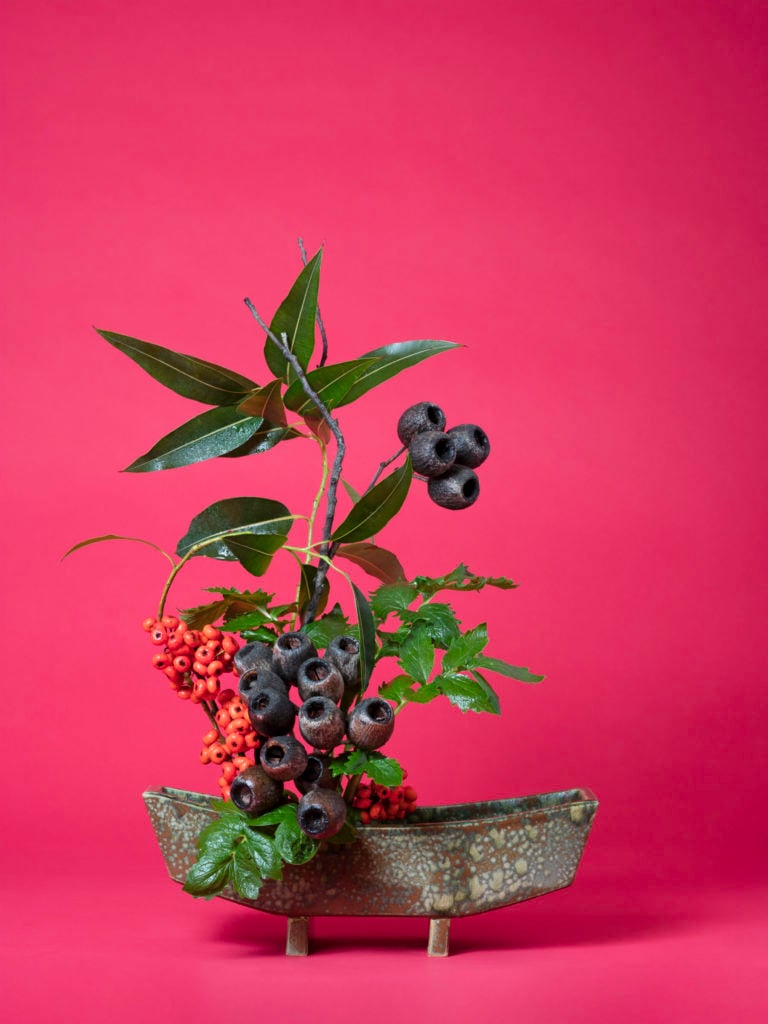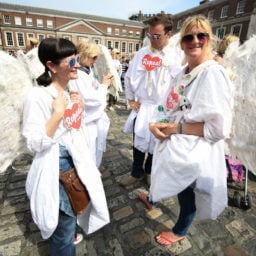Ann Shelton’s brightly colored photographs of exquisite floral arrangements, on view now at New York’s Denny Dimin Gallery, aren’t just beautiful—they also carry a hidden meaning.
Historically, all the flowers, herbs, seeds, and plants arranged in each vase have been used to treat various reproductive health issues. Shelton has chosen one fertility-linked plant for each photograph, and titled the works after stereotypical female archetypes—the vixen, the ingenue, the scarlet woman.
Centuries ago, midwives and other women passed down recipes for tonics and tinctures believed to help a woman manage her fertility. But knowledge of botanical abortifacients, Shelton says, was largely lost as the church sought to eradicate the tradition by equating the work of herbalists with witchcraft.
“This suppression of information,” Shelton told artnet News in an email, “can be seen as part of a long line of alienating acts for women centering around the female body—reaching from the medieval period through colonization and into medicine through the invention of hysteria and limited access to healthcare for women, and into present critical debates” in the US surrounding abortion.
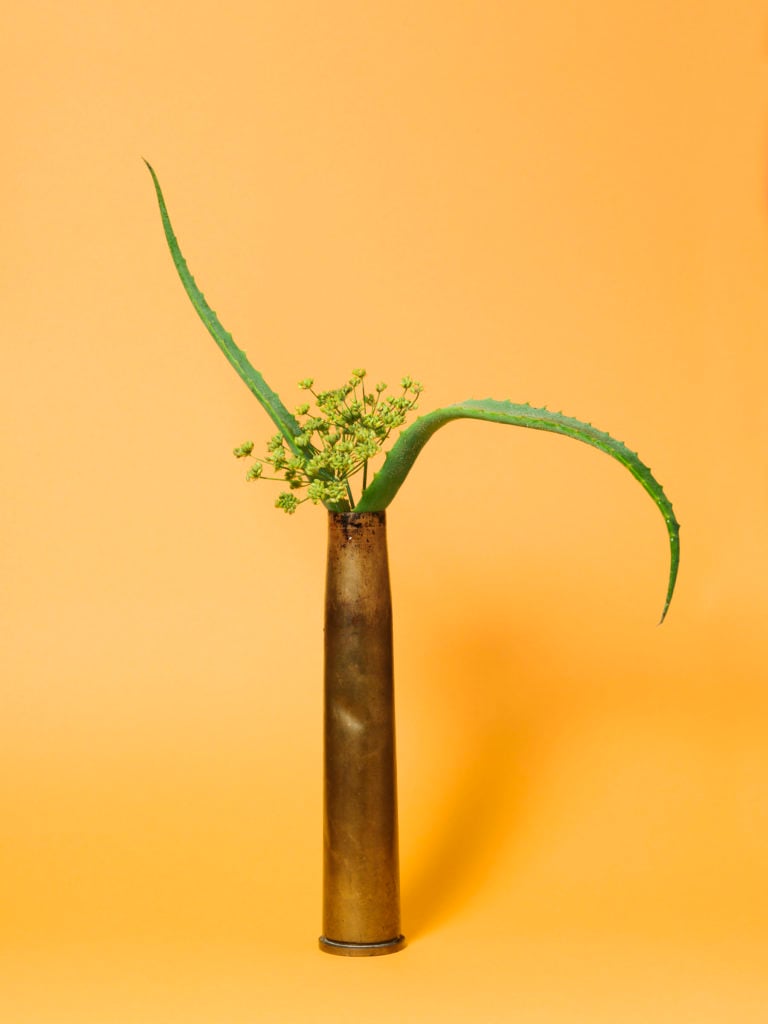
Ann Shelton, The Kept Woman, Aloe (Aloe sp.) 2015-ongoing. Photo courtesy of Denny Dimin Gallery.
Shelton is speaking, of course, about the growing number of US states passing legislation to severely restrict abortion access for women. Just this week, Alabama Governor Kay Ivey signed a bill into law making abortions a felony unless the mother’s life is at serious risk. Kentucky, Mississippi, Ohio, and Georgia have also recently approved so-called heartbeat bills, approving abortion bans after the sixth week of pregnancy, when the fetus’s heartbeat can be detected, but before many women know they’re pregnant.
“I am profoundly sad for the women and men who will be affected by these new laws,” Shelton said. “We are not through the other side of attempts to control women’s bodies, and that is what makes this discussion, and the area I am focusing on in the work, such an important debate to continue.”
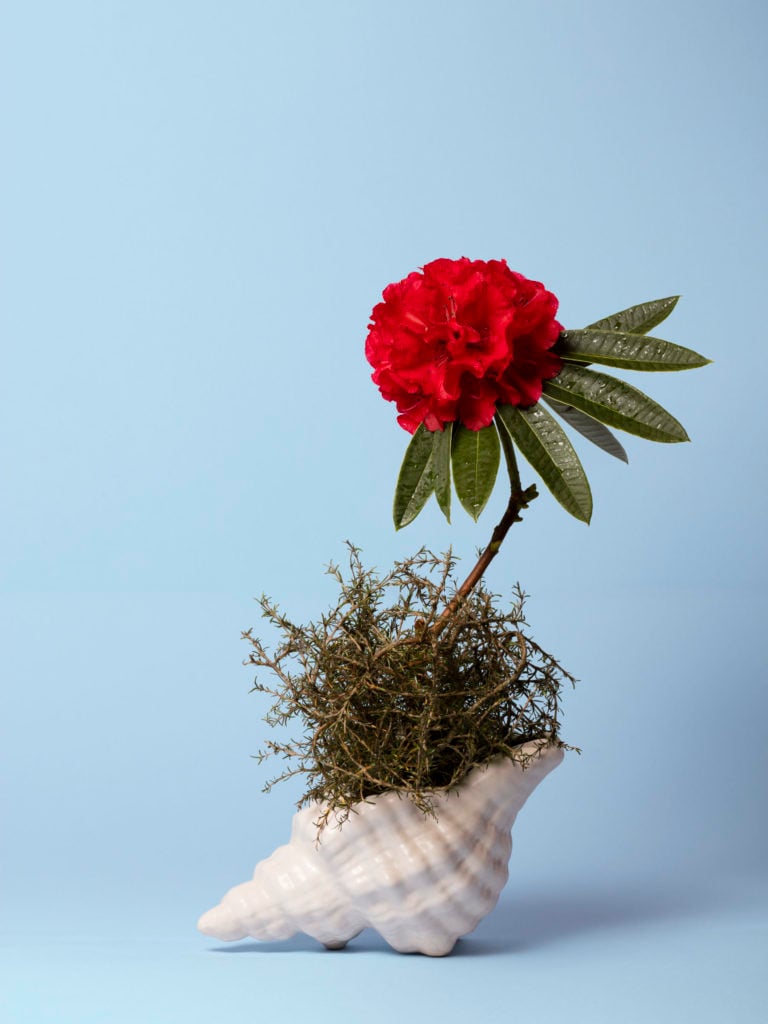
Ann Shelton, (2015-ongoing). Photo courtesy of Denny Dimin Gallery.
Shelton, who is from New Zealand, has spent a decade researching botanical history, including from books like Eve’s Herbs by John Riddle, which suggests, for example, that consuming a large amount of ginger or fennel might induce a miscarriage.
“I am interested in deepening our understanding of plants and our relationship to them. We have become alienated from nature,” Shelton said.
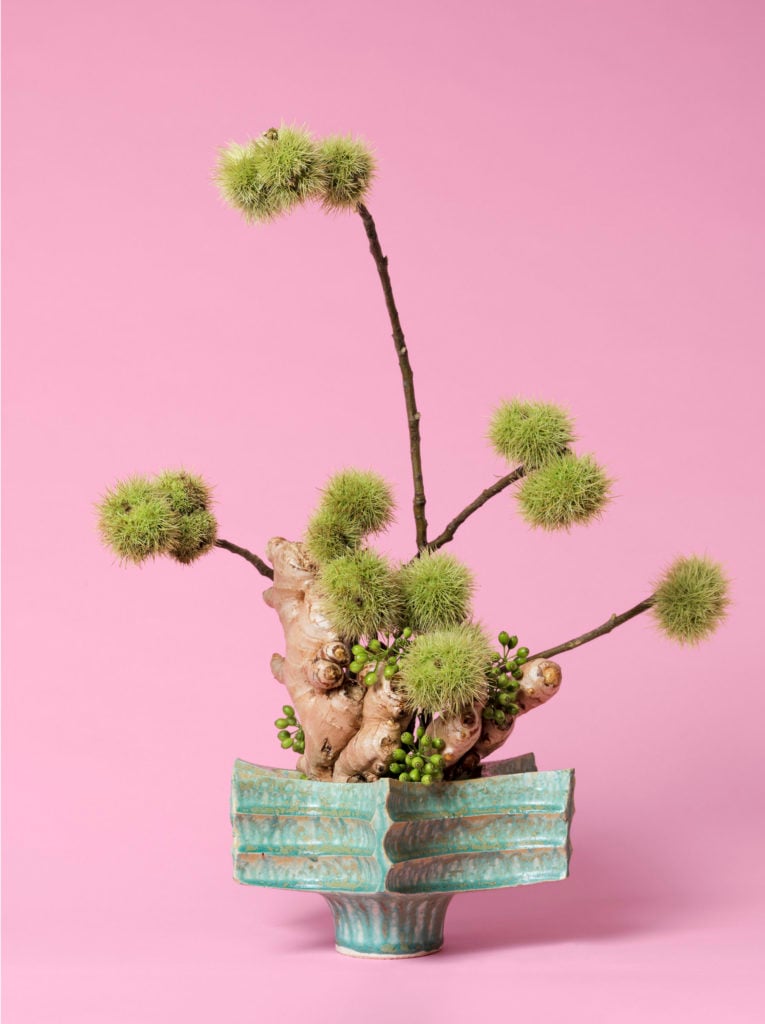
Ann Shelton, The Floozy, Ginger (Zingiber sp.), 2015-ongoing. Photo courtesy of Denny Dimin Gallery.
At the same time, Shelton’s photographs her plants in unnatural states, carefully teased and arranged in an example of ikebana, the Japanese art of formal floral display, and photographed against flat, colorful studio backgrounds.
“The control exerted over the plants I have represented is paralleled in the attempted control of women’s bodies,” Shelton said. “I’m linking the domestic sphere of floral arrangement, botany, medicine, feminism, and photographic histories.”
See more works in the exhibition below.
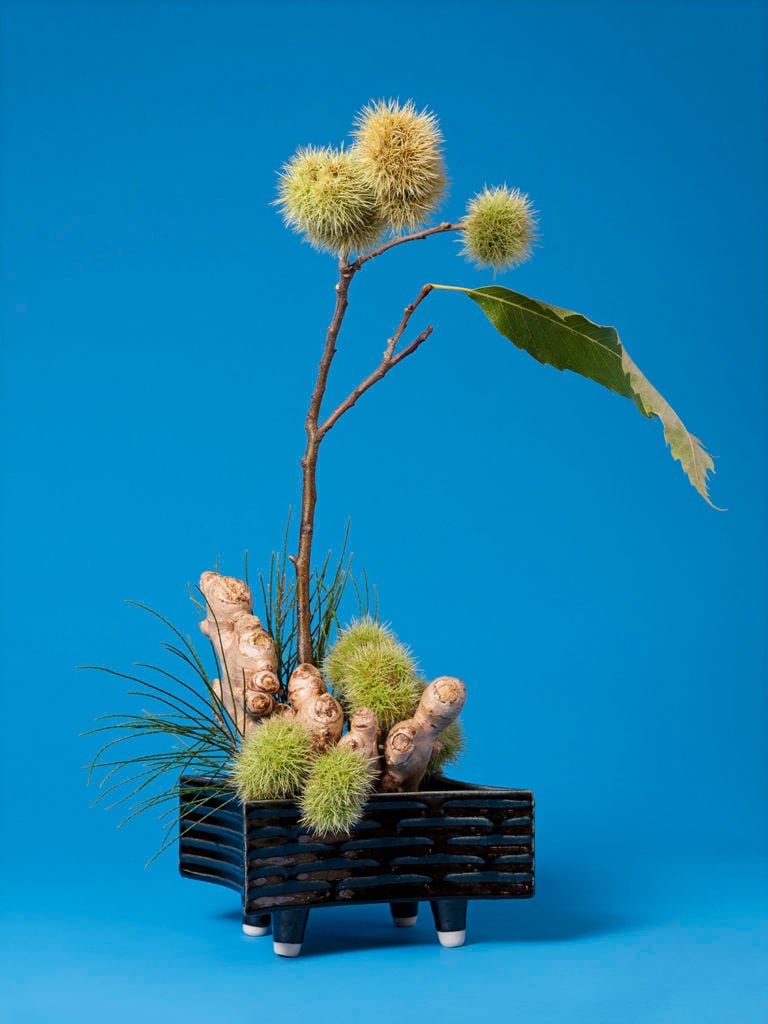
Ann Shelton, The Vixen, Ginger (Zingiber sp.), 2015-ongoing. Photo courtesy of Denny Dimin Gallery.
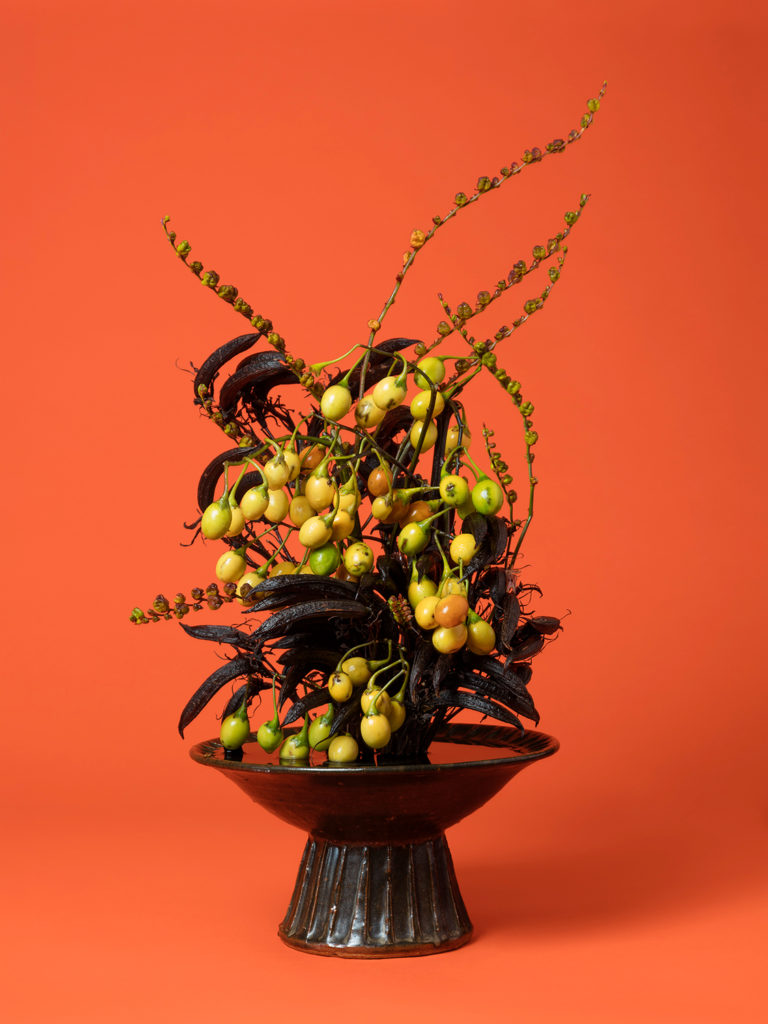
Ann Shelton, The Courtesan, Poroporo (Solanum sp.), 2015-ongoing. Photo courtesy of Denny Dimin Gallery.
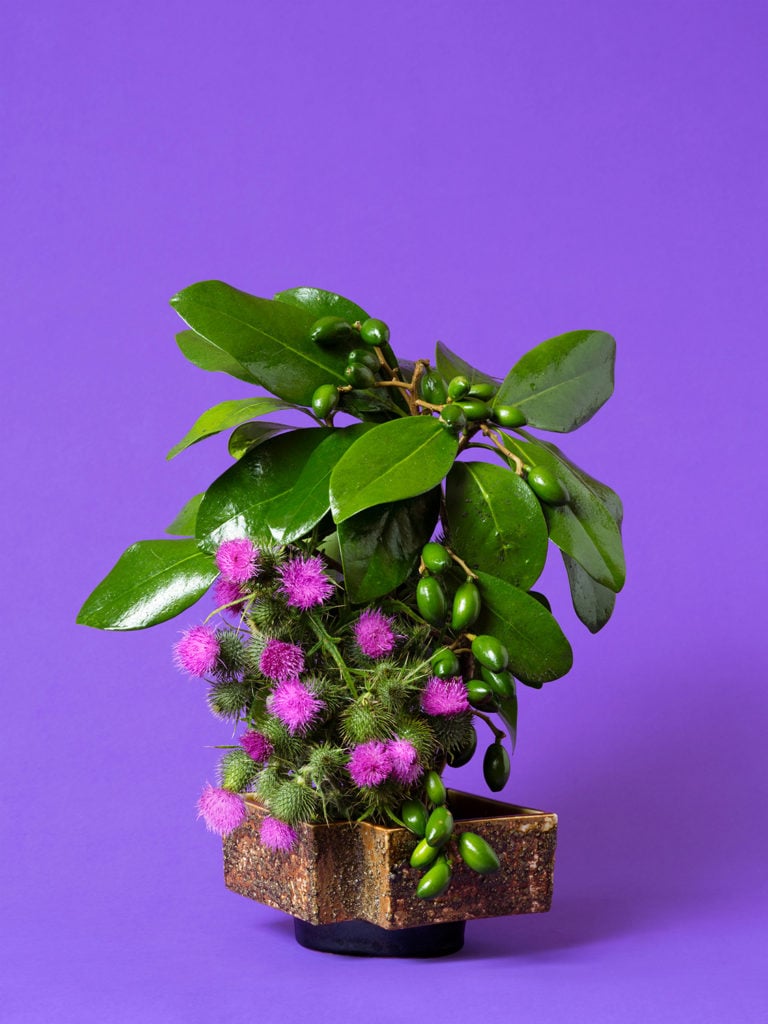
Ann Shelton, The Child Bride, Thistle (2015-ongoing). Photo courtesy of Denny Dimin Gallery.
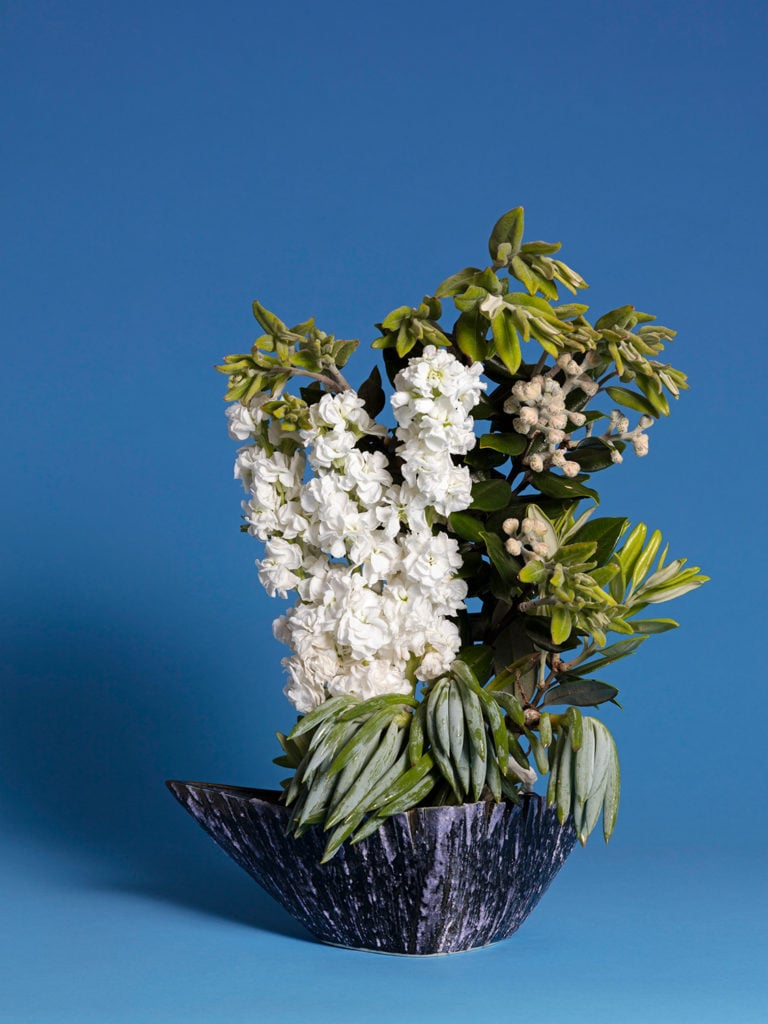
Ann Shelton, The Comfort Women, Stock (Matthiola sp.), 2015-ongoing. Photo courtesy of Denny Dimin Gallery.
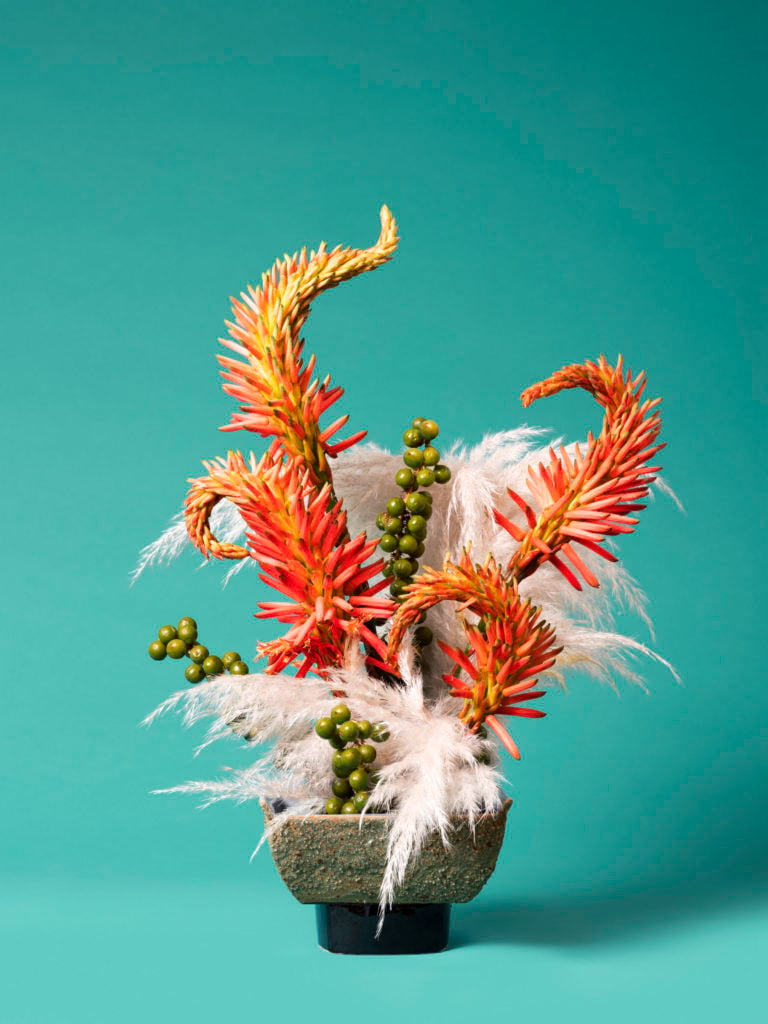
Ann Shelton, The Mermaid, Wormwood (Artemisia sp.) 2015-ongoing. Photo courtesy of Denny Dimin Gallery.
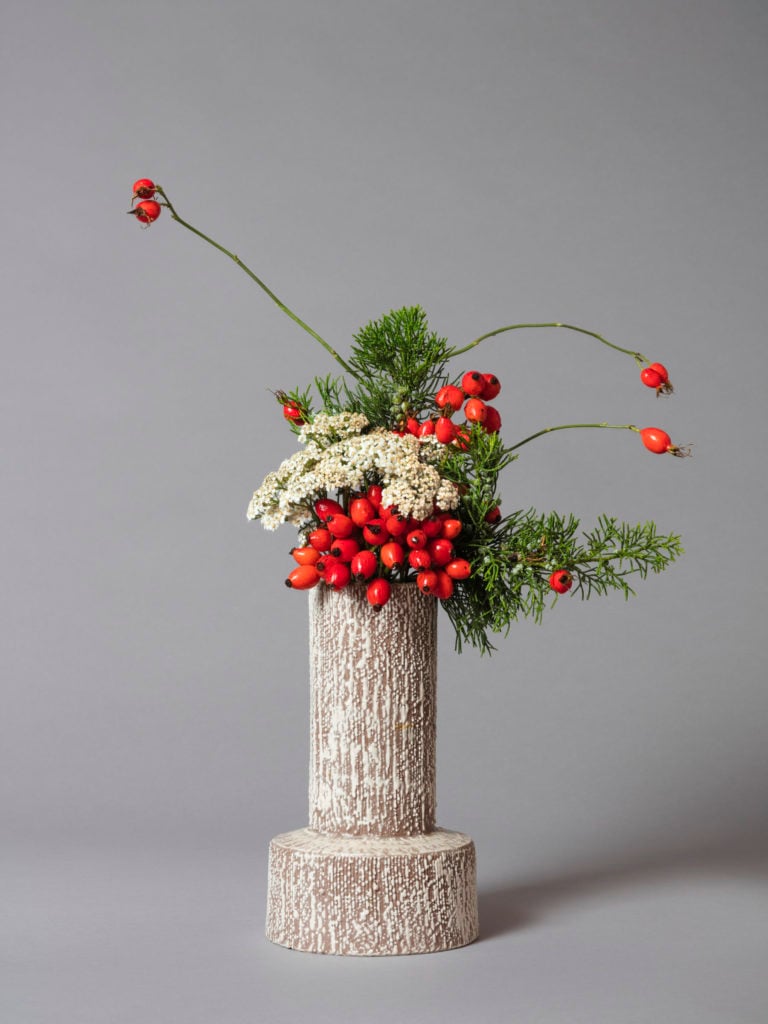
Ann Shelton, The Ingénue, Yarrow (Achillea sp.), 2015-ongoing. Photo courtesy of Denny Dimin Gallery.
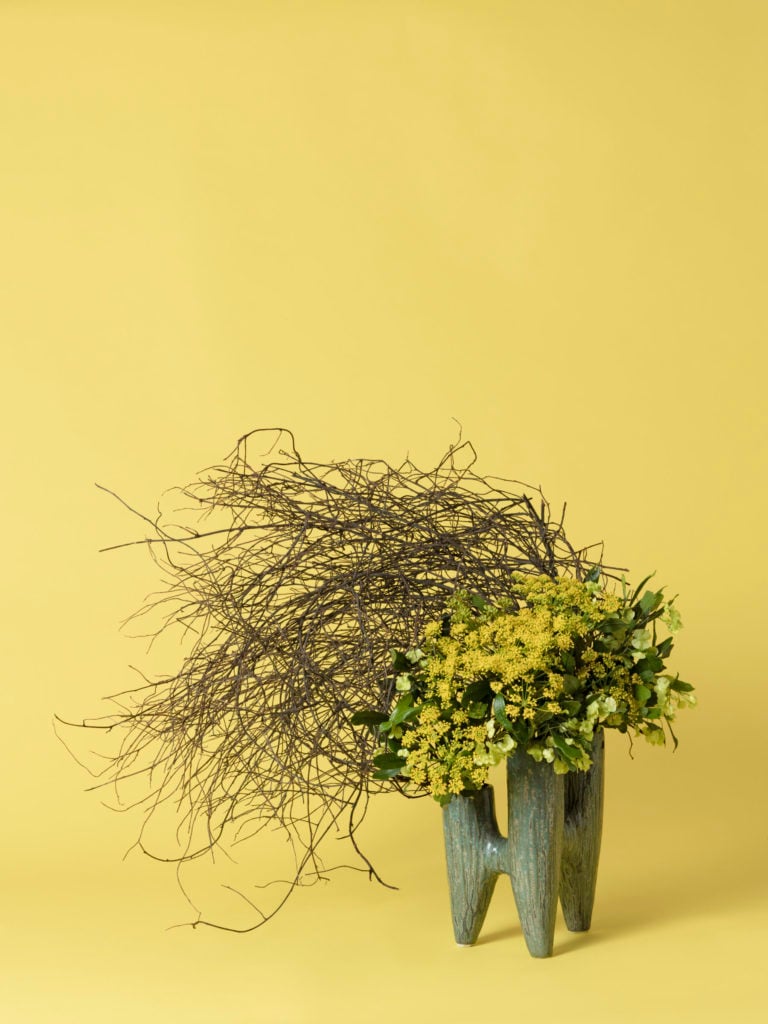
Ann Shelton, The Hysterical, Fennel (Foeniculum sp.), 2015-ongoing. Photo courtesy of Denny Dimin Gallery.
“Amy Shelton: jane says” is on view at Denny Dimin Gallery, 39 Lispenard Street, New York, through May 19, 2019.
